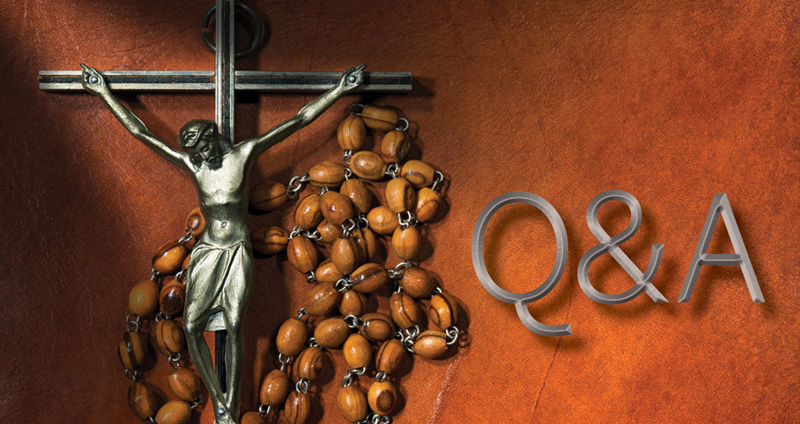
Q: Why do we use the term “hopeless” in terms of St. Jude? Suffering is hard enough without adding the negativity of hopelessness. (Aiken, SC)
A: In designating St. Jude as the patron of hopeless causes (along with other saints, such as St. Rita of Cascia), the devotional life of the Church is acknowledging the real hardship and sufferings of people. In using the term “hopeless,” our tradition is observing a state of affairs in a fallen world. By having a saint, someone who now shares in God’s glory, specified as the patron of “hopeless causes,” we are actually asserting that nothing is hopeless in God’s providence. As the Scriptures teach us: “For with God nothing will be impossible” (Lk 1:37).
So be at peace, and know that St. Jude, and the title “patron of hopeless causes,” is given to provide real hope based in God (and not the things of this world) and a lasting consolation in God’s grace to all who suffer or are in sorrow.
Q: In previous columns, you’ve indicated that a person cannot attend a gay wedding but can attend a wedding of someone who has been divorced and is remarrying. Isn’t this a double standard? Shouldn’t we treat everyone the same? (Greenville, SC)
A: I’m grateful for your question. I don’t want anyone to assume an inconsistency in our teachings, disciplines or counsels as a Church. Additionally, in giving an answer, I don’t want to offend the dignity of anyone. I realize emotions may be hurt. This is not my intention, but emotions are not synonymous with our dignity. Someone can hurt my feelings while deeply respecting my dignity.
With this said, I want to give some clarification. The counsel between the two questions was different because there is an extreme difference between the two “marriages” posed in the separate questions.
One question pertained to “gay marriage,” which is an attempt at a “marriage” that could never happen. Regardless of any legislation or public policy, such a “marriage” cannot happen since it does not match our personhood or bodily matrix. Meanwhile, the marriage asked about in the other question is an attempt at a real marriage. While the attempt is misplaced since one of the spouses is still married in the eyes of God, the attempted marriage is natural and could eventually happen (assuming an annulment is sought for and granted). The marriage has natural and sacramental possibility.
Therefore, we should not attend “gay weddings” since such an attempt at marriage could never actually happen, while we could attend a marriage of someone who is divorced and attempting a remarriage since such a marriage could eventually be convalidated by the Church. Our support has substance. Our witness could help guide the spouses to eventually seeking an annulment and the Church’s blessing for their union.
With this explanation, I hope you can see that the counsel given in previous questions is consistent in both situations. There is no double standard. One answer pertained to a potential marriage while the other question did not.
Q: What is the responsibility toward blessed rosaries, medals and crosses? How can I dispose of them? What about unsolicited religious items sent in the mail? Can I dispose of them? (Little River, SC)
A: When devotional objects and blessed sacramentals are no longer able to be used or cannot be used (such as, you’ve received too many of them in the mail), then such objects could be given away to others. If this is not possible, then they should be devoutly burned or buried. There are no set prayers for this practice in the Christian home. Any prayer, such as the Lord’s Prayer, can be used while burying or burning such objects.
Father Jeffrey Kirby is administrator of Our Lady of Grace Church in Lancaster. Email him your questions at askfrkirby@gmail.com.


